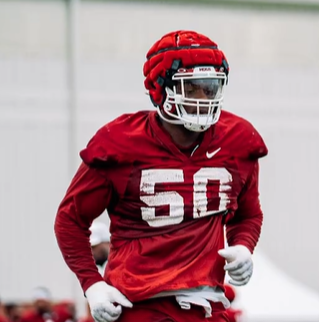Byron Moore, Eric Gregory’s coach, is standing next to him as he hunches into the starting blocks for the 400-metre sprint, guaranteeing a quick start. Gregory frequently cannot hear the pistol or the starter’s commands because he lost the majority of his hearing as a child. That’s why he relies on Moore’s signals from the other lane and a rallying cry of “Let’s go!” when the gun fires.
Gregory has locked up the final berth in the 400-metre field for the opening round of the U.S. Olympic track and field trials. Gregory is coming off his third straight Division III national title with Gallaudet University.
Gregory was raised in Louisiana and started losing his hearing at the age of five from unidentified causes. These could have been related to a disease or an incident when he was younger and fell on his head while wrestling with his brother.
Gregory needs hearing aids because his right ear can hear just 25% of what his left ear can. He usually avoids wearing them during races because the wind distorts sounds and makes it harder for him to perform well.
Quiet speed: Gregory’s path to ground-breaking achievement
Gregory is being mentored by Moore, a coach at Gallaudet University in Washington, D.C., which is well-known for providing instruction to deaf and hard-of-hearing students all over the world.
As suggested by Tony Tatum, a former great athlete who is now a recruitment specialist, Gregory’s speed increased significantly under Moore’s guidance. He recently won the 400-metre dash in the NCAA Division III national championships in Myrtle Beach, South Carolina, setting a lightning-fast time of 45.73 seconds to claim the U.S. Deaf Collegiate Record.
This remarkable feat may earn him a desired berth in future trials, which would be a significant turning point in his career as an athlete.

